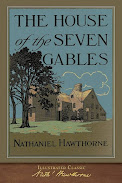Vinyl LP Records 1. Madhukauns, Jogiya & Dhun.
2. Hamsadhwani, Kafi Dhun & Ramkali.
3. Ahir Bhairav, Simhendra Madhyamam & Jog.
4. Deshi, Shuddha Sarang & Yaman Manj.
5. Hem Bihag, Malaya Marutham, Mishra Mand.
6. Madhuvanti, Mishra Mand.
7. Puriya Dhanasri, Charukeshi, Kafi Holi, Dhun & Mishra Piloo.
8. Pather Panchali, Fire Night, Keeravani & Rageshri.
9. Abhogi Kanada & Tilak Shyam.
10. Ahir Lalit & Rasiya.
11. Lalit & Khamach.
12. Nat Bhairav & Mishra Pilu.
13. Bihag
14. Parameshwari
15. Gangeshwari, Rangeshwari & Kameshwari.
16. Alihiya Bilaval & Patdeep
17. Shuddha Kalyan, Samant Sarang & Devagiri Bilaval.
18. Dadra, Maru Bihag, Bhimpalasi & Sindhi Bhairavi.
19. Malkauns & Multani.
20. Bhopal Todi & Sindhi Bhairavi.
21. Bhim palas, Pancham se Gara (Monterry)
22. Hamir, Gara.
23. Jogeshwari
24. Mohan Kauns & Hemant.
25. Shuddha Kalyan & Rasiya (Victoria Memorial)
26. Puriya Dhanasri, Manj Khamach (Woodstock).
With Ali Akbar Khan
27. Bilaskhani Todi & Palas Kafi.
28 Shree & Sindhu Bhairavi
29. Durga & Khamach
30. Hem Bihag, Manj Khamach & Sindhu Bhairavi.
31. Mishra Pilu.
32. Jhinjoti & Bahar (solo).
With Yehudi Mehuhin
33. Prabhati, Puriya Kalyan & Tilang.
34. Ananda Bhairav, Mishra Pilu & Dhun.
35. Nat Bhairav, Puriya Danasri, Miya ki Todi, Nat Bhairavi.
Orchestral & Film music
36. Durga, Shiva Ranjini, Rokudan, Kaushik Dhwani. (Japan)
37. Meera Film Songs.
38. Music from "Charly".
39. Music from "Gandhi".
40. Festival from India.
41. Shankar Family & Friends.
42. Jazz Mine.
43. Asian Games 1982 Music.
44. Sitar Concerto 1 with Previn.
45. Sitar Concerto 2 with Mehta.
7" Extended Play E.P. Records
1. Marwa, Hemant, Yamani Bilaval & Prach.
2. Sindhu Bhairavi, Tilak Shyam, Nat Bhairav & Puriya Kalyan.
3. Bhatiyar, Hameer, Keeravani & Rasiya.
4. Ahir Lalit, Pancham se Gara, Yaman Manj & Bengali Kirtan.
5. Kaushi Bhairav & Khamach.
6. Megh & Nand.
7. Janasanmohini & Mishra Gara.
8. Todi & Manj Khamach (with Ali Akbar).
9. Mishra Jhinjoti (with Ali Akbar) & Joi Bangla.
10. Songs from film "Anuradha".
Pre-recorded Cassettes
1. Abhogi, Desh, Todi & Thumri.
2. Asa Bhairav, Kaunsi Kanada & Mishra Gara.
3. Passages (with Philip Glass).
4. Tana Mana.
5. Inside the Kremlin.
6. Ahir Bhairav & Bengali Kirtan (Live at Hyderabad)
7. Ananda Bhairav & Sindhi Bhairavi. (Live at Pune).
8. Parameshwari (Dover Lane)
9. Asa Bhairav & Mishra Bhairavi (Dover Lane)
10. Encounter (for festival of France).
11. Bagesri, Manj Khamach (Live at Delhi).
12. Chants of India.
13. Genesis film music.
14. Chappaqua film music.
15. Kaushi Kanada & Mishra Gara (Carnegie)
Compact Discs
1. Gangeshwari (Live at Allahabad).
2. Kaunsi Kanada & Bihag
3. Janasanmodini & Desh (Copenhagen)
4. Bibhas, Parameshwari (Hollywood).
5. Dhun & Sindhi Bhairavi (Hollywood).
6. Malgunji, Khamaj, Kedar & Satyajit.
7. Mishra Kafi, Sindhi Bhairavi & Bhairavi.
8. Multani & Vachaspati.
9. Symphony London Philharmonic.
10. Basant Mukhari, Basant Pancham & Kedar.
11. Sanjh Kalyan, Yaman & Dhun.
12. Bairagi Todi, Gaud Sarang, Gara.
13. Bairagi, Nat Bhairavi & Marwa.
14. Tilak Kamod, Bhatiyar & Dhun
15. Bhatiyar, Sindhu Bhairavi (Stutgart)
16. Todi & Shuddha Sarang (Montery 67)
17. Todi, Manj Khamach & Shailangi (Venice)
18. Rajya Kalyan, Pahadi Jhinjoti.
19. Anandi Kalyan & Desh.
20. Miya ki Malhar, Sindhura & Kafi.
21. Jhinjoti & Khamach (70th Anniversary)
22. Bihag & Pancham se Gara. (70th A.)
23. Charu Kauns & Dhun.
24. Purvi Kalyan, Puriya Kalyan & Man Pasand.
25. Jait & Keeravani (Albert Hall).
26. Mishra Khamach (Albert Hall).
27. Yaman Kalyan. (Bangalore)
28. Tilak Shyam & Khamach. (Bangalore).






































